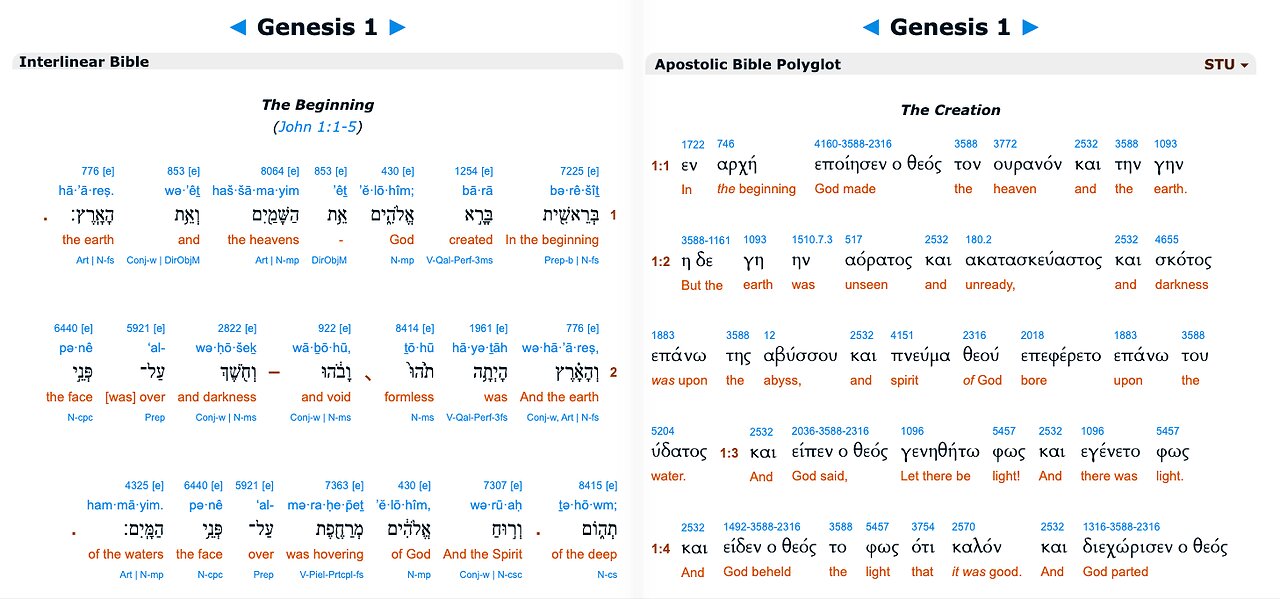Premium Only Content

Language
Originally streamed Jul 5, 2016
When people argue over the meaning of various parts of the Bible, they typically base these arguments on translations. But even when they go to the original languages, the ones they think are original aren't necessarily so, and there is evidence of tampering. It is my hope in this video to present, as briefly as possible, information which throws light upon the Bible's ancient manuscripts and languages, as well as to stress the importance of good linguistic sources.
Please understand that this in no way undermines the integrity of the Bible. The fact that we know of tampering proves that the truth is discoverable, and that the tampering was not perfectly concealed. And think about what this means, what implications arise from these facts.
paleo-hebrew alphabet, see 1st 2 paragraphs and chart
https://en.wikipedia.org/wiki/Paleo-Hebrew_alphabet
used from 10th to 5th century BC,
switched to Assyrian script during Babylonian exile (about 609-538 BC)
then to Aramaic script in 3rd cent. BC
https://en.wikipedia.org/wiki/Babylonian_captivity
Greek translation, the LXX, translated by Jews around the 3rd century BC during the reign of Ptolemy Philadelphus, one of Alexander the Great's generals; this was the Bible of the first century AD
http://septuagint.net/
Masoretic text written 10th-11th centuries AD but differed little from Dead Sea scrolls written several centuries earlier, created vowel pointing, and this version differed from the LXX and quotations by historians, and shows evidence of altering/obfuscating Messianic prophecies to counter Christian claims; the Masoretes were formerly called Talmudists
https://web.archive.org/web/20220313075120/http://www.biblebelievers.org.au/masorete.htm
Dictionary/Lexicon tampering:
some research omitted to alter semantic range http://www.fether.net/index.php?ID=215
vowel pointing materially changing meaning https://www.godswordtowomen.org/lesson_77.htm (621-622)
Strong's Concordance limitations:
a concordance, not a lexicon https://hermeneutics.meta.stackexchange.com/questions/923/strongs-is-a-concordance-not-a-lexicon
example: toxon (bow) https://www.billmounce.com/greek-dictionary/toxon vs. Strong's 5115 ("apparently as the simplest fabric"). But the base, tikto, means "to bear, be born, bring forth" and has nothing at all to do with cloth
UBS tampering with NT Greek:
https://englishbibles.blogspot.com/2006/11/junia-apostle-index.html
Better Bibles, Part 1 under “From a review of Epp’s book,” regarding the changing of Junia to Junias, masculine, without any manuscript support. The deliberate error was quietly corrected many years later, again without the required attestation.
defenses of the Bible text
http://fether.net/index.php?ID=588
esp. article on LXX by William Dankenbring
https://web.archive.org/web/20170411121958/http://www.triumphpro.com/lxx.htm
who wrote Genesis?
https://creation.com/did-moses-really-write-genesis
Salvation is an offer of adoption that you accept by trusting the Jesus who rose from the dead. You can't earn it or work to keep it; you can only live in humble gratitude for it. Jesus is the only way to be adopted by God as our Father.
We are Christ’s ambassadors, so God makes his appeal through us: Be reconciled to God. This is the Good News! Christ died for our sins according to prophecy, then he was buried, and then he was raised on the third day according to prophecy. When we heard the word of this saving Good News, we believed and were sealed with the promised Holy Spirit. At that moment we were guaranteed eternal life.
Because of that, we live in humble gratitude, since this isn't a license to sin. At salvation we were cleaned up, set apart, and cleared of all charges, not by performing good deeds or obeying the law of Moses, but by faith alone. We were saved only by the grace of God. It wouldn't be a gift if you had to earn it or had to work to keep it. Instead, you live to please God out of love.
-
 LIVE
LIVE
The Big Mig™
3 hours agoBOOM, Trump Signs EO To Investigate The 2020 Election
3,569 watching -
 LIVE
LIVE
Canada Strong and Free Network
2 hours agoCanada Strong and Free Network
268 watching -
 1:03:38
1:03:38
Geeks + Gamers
27 days agoWoke Disney Fans MAD At Lilo And Stitch Trailer, Dwarf Actors PISSED At Rachel Zegler's Snow White
9.52K5 -
 56:26
56:26
BonginoReport
4 hours agoThe World Must Choose: America or China - BR Early Edition w/ Evita (Ep.179) - 04/10/2025
112K128 -
![🔴[LIVE] Breaking CPI Inflation Report (Stock Market Pump) || The MK Show](https://1a-1791.com/video/fww1/f2/s8/1/9/Y/T/A/9YTAy.0kob.1-small-LIVE-Breaking-CPI-Inflation.jpg) LIVE
LIVE
Matt Kohrs
10 hours ago🔴[LIVE] Breaking CPI Inflation Report (Stock Market Pump) || The MK Show
1,488 watching -
 1:09:45
1:09:45
Dear America
11 hours agoTrump Puts China On An Island, Brings Xi Jinping To His Knees + Tampon Tim Gets BOOED By Veterans!
56.3K12 -
 LIVE
LIVE
Wendy Bell Radio
6 hours agoTrump Wins Again
9,327 watching -

2 MIKES LIVE
2 hours agoTHE MIKE SCHWARTZ SHOW with DR. MICHAEL J SCHWARTZ 04-10-2025
4.38K1 -
 1:26:51
1:26:51
JULIE GREEN MINISTRIES
4 hours agoLIVE WITH JULIE
138K171 -
 1:25:49
1:25:49
Game On!
19 hours ago $5.01 earnedThe Masters 2025 is HERE!
41.6K